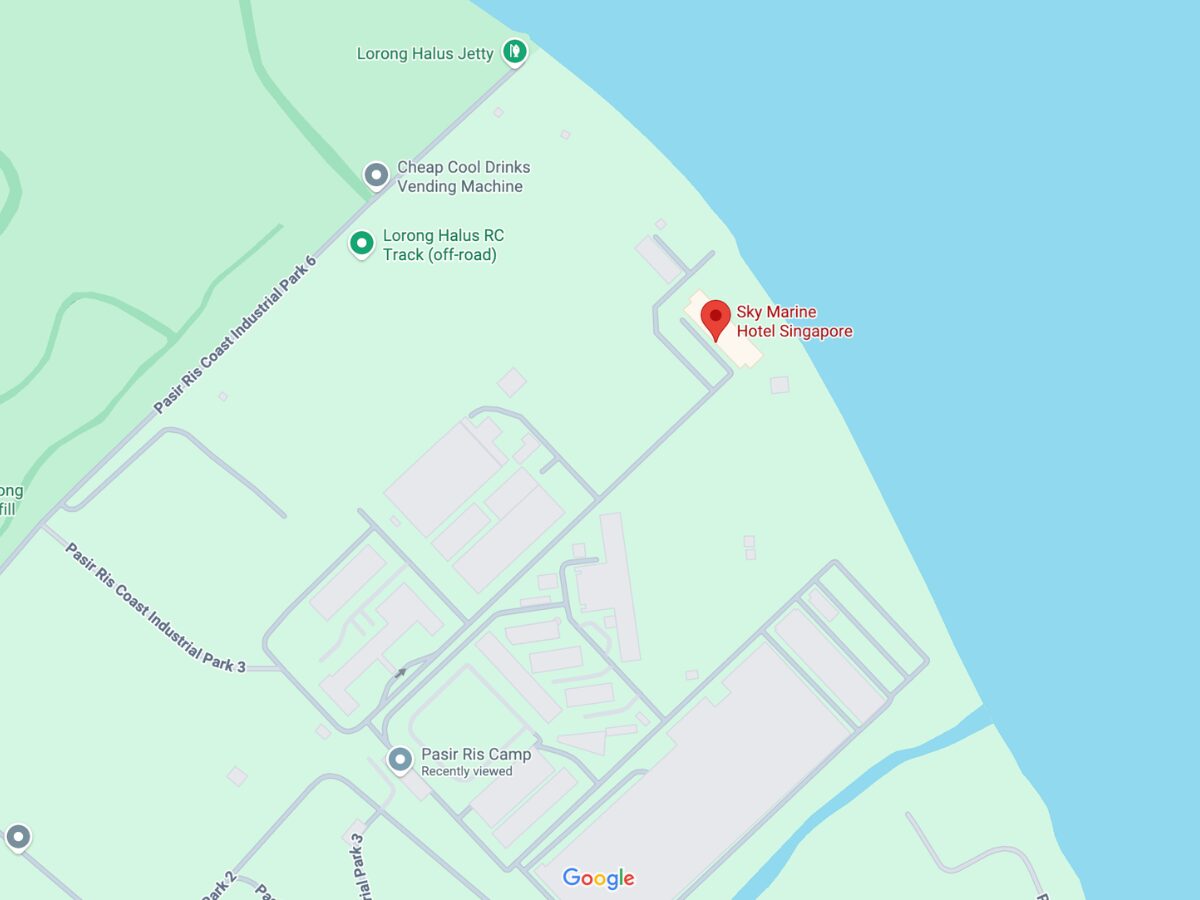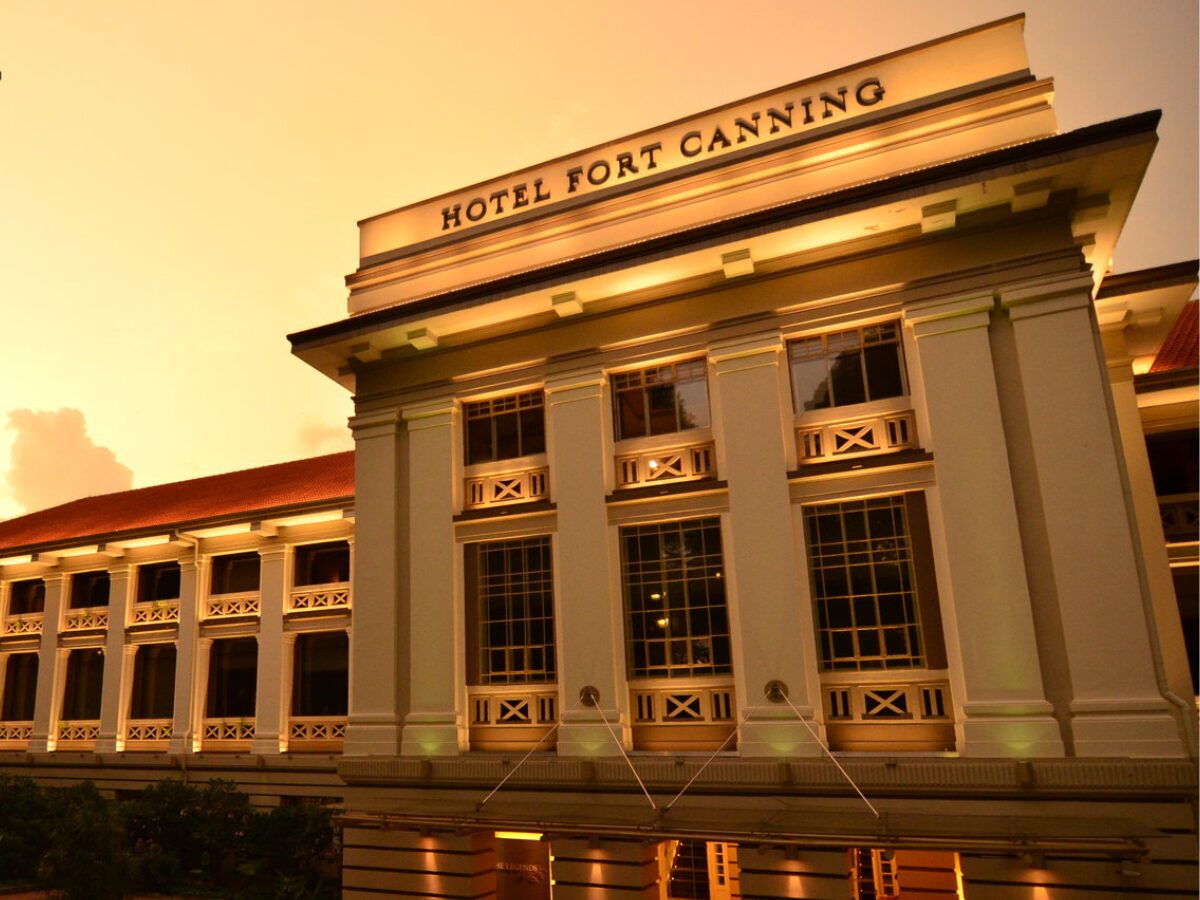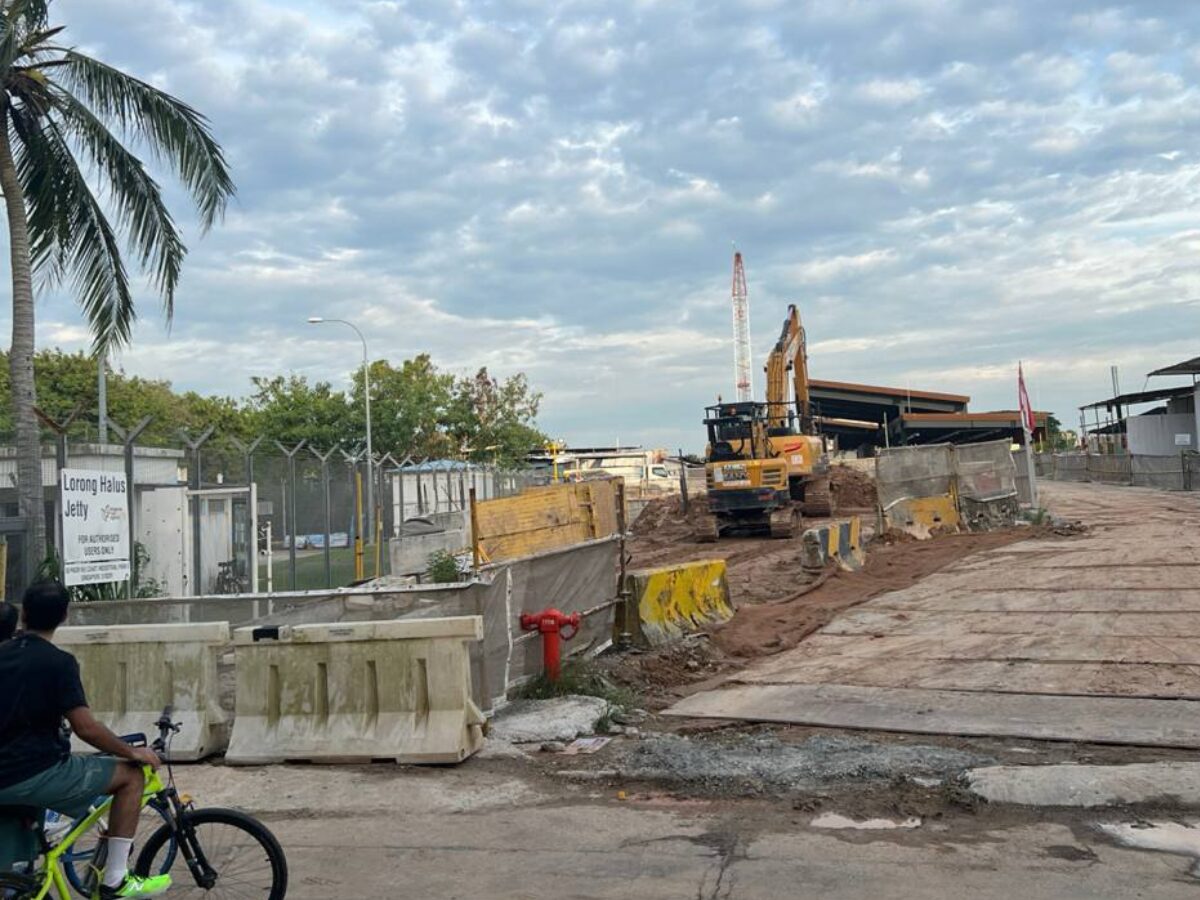Sky Marine Hotel Singapore is a fraudulent hotel listing that has appeared on Google Maps and various online platforms, claiming to be a luxury accommodation facility. The listing presents itself as a seaside hotel with stunning ocean views, complete with an “official” website and contact details that appear legitimate at first glance.
However, forum discussions and investigations have revealed this to be an elaborate scam designed to deceive tourists and potentially facilitate various fraudulent activities.
Table of Contents
- The problematic location
- The tell-tale signs of AI use
- The broader context: Singapore’s Military-to-Hotel conversions
- Why this matters
The problematic location

The address listed for Sky Marine Hotel is on the same road to Pasir Ris Camp, an active Singapore Armed Forces (SAF) military training facility in eastern Singapore. This location is an operational military base housing the 10th Singapore Infantry Brigade, within an industrial area along Pasir Ris Coast Industrial Park. As every Singaporean knows, camp areas are completely inaccessible to civilian tourists or hotel guests.
The choice of this location appears strategic, as Google Street View cannot access military installations, making it difficult for potential victims to verify the property’s legitimacy through online reconnaissance.
Several concerning elements make this listing suspicious. Forum users have noted that promotional images appear to be AI-generated, lacking the authentic characteristics of genuine hotel photography. The building shown in marketing materials doesn’t match the actual structures at the claimed location.
Moreover, the website domain skymarinehotel.com was registered on July 18, 2025, through an Australian registrar with privacy protection, concealing the true identity of the registrants. The domain uses private registry services, a common tactic in fraudulent operations.
The tell-tale signs of AI use

One of the clearest giveaways of the Sky Marine Hotel hoax was its AI-generated promotional images. Mothership’s investigation noted these visuals were unnaturally polished and lacked the natural imperfections common in authentic property photos. For instance, one image oddly features a staff member holding a snowboard; which is highly incongruous for Singapore’s tropical climate.
Travellers can often spot AI-created visuals by paying attention to subtle inconsistencies. Props, clothing, and backgrounds that don’t match local culture or climate are clear signs of fabrication. Distortions in architectural details or scenery may also indicate AI use, while reverse image searches and tools like Google Maps or Street View can help confirm whether a location actually exists. The simplest rule of thumb: if images look too perfect, take a closer look.
📰 Real-world example: Malaysia’s AI-driven scam
In a widely shared story, a Malaysian couple drove 300 km to visit a non-existent cable car attraction, lured by a convincingly staged AI-generated video featuring scenic backdrops and fake interviews. The case highlights how AI-powered marketing materials can create realistic but entirely fictitious destinations, tricking unsuspecting travellers.
The broader context: Singapore’s Military-to-Hotel conversions

Ironically, one reason the Sky Marine Hotel scam may appear plausible is that Singapore has a rich history of repurposing former military sites into luxury hotels. Over the years, the city-state has demonstrated how disused army facilities can be transformed into heritage icons, offering travellers both history and high-end hospitality. Here are a few names that come to mind:
Hotel Fort Canning
Perched on a historic hill in central Singapore, Hotel Fort Canning occupies the 1926 Administration Building of the British Far East Command Headquarters. This building once served as a nerve centre for British military strategy, complete with secret underground bunkers that are now part of guided tours. Today, the hotel is a boutique luxury destination, seamlessly blending colonial architecture, modern amenities, and lush greenery. Its successful transformation has made it a model for heritage restoration.
The Barracks Hotel Sentosa
Sentosa Island’s Barracks Hotel is another testament to Singapore’s knack for adaptive reuse. Originally the Blakang Mati Artillery Barrack, built in 1904 to house British soldiers, the property now serves as a high-end boutique hotel that celebrates its military past. The original parade grounds, watchtowers, and colonial-style façades remain intact, creating a unique experience for history buffs and luxury travellers alike.
Raintr33 Hotel
The Raintr33 Hotel, once the headquarters of the British Royal Engineers at Hendon Road, sits in the tranquil Changi area. It offers guests a rare glimpse into Singapore’s early military engineering history while surrounded by nature reserves and coastal views. Its sensitive redevelopment showcases how even utilitarian military facilities can be reimagined into serene retreats.
Why this matters

These successful transformations give credence to scams like Sky Marine Hotel. To unsuspecting tourists, the idea of a luxury hotel emerging from a military camp sounds perfectly believable because of past examples.
Scammers exploit this precedent by fabricating stories of “newly converted” properties, leveraging Singapore’s reputation for safety, meticulous planning, and design excellence. The combination of polished branding, fabricated reviews, and a believable backstory makes these scams far harder to detect than low-effort phishing attempts.
Travelers should verify accommodation through multiple sources, cross-reference locations using street view when possible, and be suspicious of hotels in unusual locations without established online presence or verifiable history.
The case serves as a reminder of the importance of due diligence in online bookings and the sophisticated methods employed by modern scammers to exploit Singapore’s reputation as a premium tourism destination.
The post The mystery of Sky Marine Hotel: Does it even exist? appeared first on .

